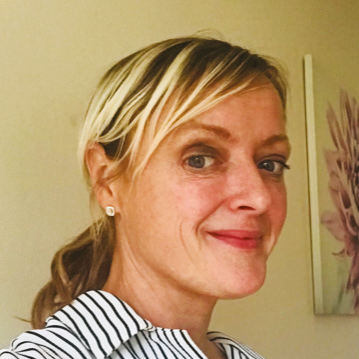“Many of us have become acutely aware of our professional weaknesses”

We may have been forced out of our classrooms, but our journeys to becoming better teachers will still continue while we’re exiled at home, writes Jayn Sadler…

- by Jayn Sadler
- English teacher based in north Essex

During our second week of lockdown, many of us will have been taking the opportunity to independently enhance our professional skills and knowledge.
There are numerous good CPD courses out there that can be accessed online while the pandemic is in progress, and I’m sure many of you will have been making good use of these.
At the same time, having been forced to abandon our standard classroom practice, many of us will have found ourselves becoming acutely aware of our professional weaknesses more generally. Not necessarily the things that went wrong for us during formal observations, those pedagogical experiments that failed, or even little Johnny’s constant shouting out of answers to every question – but rather those small facets of our daily classroom practice that we promised ourselves we’d work on when we next ‘had the time’.
You know the sort of things – becoming more familiar with one of the poems from the cluster, or reading up on key historical or scientific figures, such as Alan Turing or Nicola Tesla. Maybe you felt your bank of knowledge was missing a properly rounded understanding of how electromagnetic fields work, or how we pass laws in parliament? Knowledge is power, after all…
In terms of my own professional development, I’d always wanted to know more about where our stories of today come from, so I’ve enrolled in an online course in classical civilisations. Doing so has allowed me to explore the foundations of storytelling and theatre, as well as novels and plays that echo the religion and politics of the time. As I’ve proceeded through the course, my interest in, and captivation with what I’m learning about has continued to grow and steadily become a passion. I firmly believe that in order to inspire, we ourselves need to be inspired; harnessing this internal passion and recreating it in our students is the key to what we do as educators.
Emotive hooks
As well as accessing online CPD, we should perhaps also set ourselves another goal this April – committing to learning something new every day. You could do as I’ve done for years and keep a ‘journal of facts’ for entering discoveries as you come across them, whether intentionally or through coincidence. A few of my more obscure journal entries from the past week include the fact that the ‘Philosopher’s stone’ is chemistry’s quest to discover the process by which ordinary metals can be turned into gold.
I also recorded the legend of Demeter and Persephone from Ancient Greece, and the solar allegory behind the biblical story of Jonah and the Whale. My other journal notes have touched on far more trivial knowledge, such as how the perfect poached egg can be made by ‘spinning’ the water and that virtual horse-racing is a thing. I’ve become an unashamed, self-proclaimed collector of facts, useless or otherwise!
Why do I continue with this, and why is it worth recording our own learning? It’s because seemingly random facts like these have helped me bring learning to life much more vividly. Complicated critical theory can be explored using examples from modern culture, such as citing Diego Maradona as a contemporary tragic hero, whose personal journey can be compared to the character of Macbeth (albeit with the scoring of a goal that dumped Italy out of the World Cup, rather than the murder of a king).
Cultural awareness
I’ve previously used scenes from The Matrix to explain Plato’s allegory of the cave, and the Netflix series Inside the Mind of Aaron Hernandez to prompt conversations around the duality we see in Dr Jekyll and Mr Hyde. I’ve used Tesla’s science to explore how his technologies gave rise to many systems of language and communication still in use today. Eyes have widened when I’ve revealed that the human eye can only perceive 0.005% of the electromagnetic spectrum. Kids lap this stuff up!
My own school has been keen to promote cross-curricular links of this kind, because it’s through this type of emotive story-telling that we can diversify, simplify and expand our subject knowledge for the benefit of young minds. Establishing links for our students between the past, our present and onward into the future helps promote a deeper and clearer understanding of how knowledge is constructed. As teachers, the more we can establish and make these connections clear for our students – in dramatic fashion – the more culturally aware they will become.
In time, the history of this pandemic will be laid bare for future generations. They’ll learn about it in their classrooms between break times and lunch hours, and they’ll probably wonder what we all did with ourselves while we were locked away. Can I go on record now as being an obsessive collector of stories…?
Jayn Sadler is an English teacher from north Essex










